Iran arrests two female fans at football match
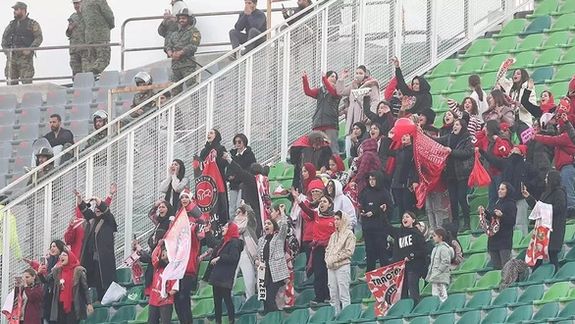
Iran’s judiciary announced that two female spectators have been arrested during a football match at Tehran's Azadi Stadium as the government's push to ban women from games continues.

Iran’s judiciary announced that two female spectators have been arrested during a football match at Tehran's Azadi Stadium as the government's push to ban women from games continues.
The judiciary said the women were detained during a domestic match between Persepolis and Tractor FC for allegedly engaging in “immoral behavior " but did not specify details or the exact charges they face.
Women have been banned from attending football matches in major stadiums like Azadi since the 1979 revolution, with authorities citing concerns over the stadium environment.
While FIFA and human rights organizations have pressured Iran to lift the ban, access remains highly restricted, the government using the country's strict Islamic laws to enforce segregation in what the UN and rights groups have termed "gender apartheid".
In 2019, FIFA intervened after the death of Sahar Khodayari, known as the "Blue Girl," who set herself on fire after being arrested for trying to enter a stadium disguised as a man.
In 2022, a limited number of women were briefly allowed into domestic league matches in Mashhad, though many were blocked from entering despite having tickets.
In spite of the bans at home, Qatar's World Cup in 2022 saw huge numbers of women turn out to support Iran.
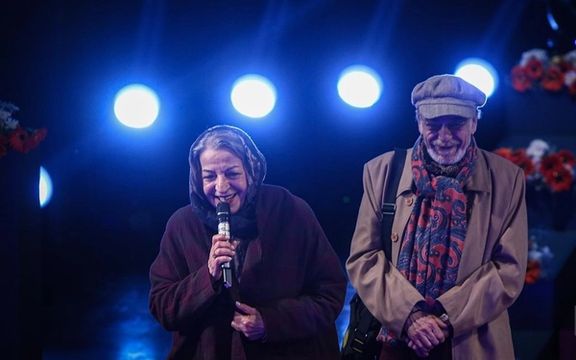
Iran’s judiciary has filed a legal case against filmmaker Marzieh Boroumand and actor Reza Babak for shaking hands on stage at the state-run Fajr Film Festival, breaking the country's strict Islamic laws.
A report by the judiciary-affiliated Mizan news agency said legal proceedings on the case took place in "recent days" but did not provide further details.
Boroumand, a filmmaker and puppeteer, is best known for her contributions to children's television, while Babak is a veteran actor in Iranian theater, television, and cinema industry.
Under Iran’s Islamic laws, physical contact between unrelated men and women is generally prohibited in public, including handshakes.
While enforcement of the law varies, authorities have prosecuted public figures in the past for similar incidents.
In 2015, Iranian cartoonist Atena Farghadani was charged with "indecent conduct" and "illegitimate sexual relations" after allegedly shaking hands with her male lawyer.
At the time, Amnesty International condemned the charges against Faraghdani saying, “It is clearly both absurd and a violation of the right to privacy to consider a man and a woman shaking hands as a criminal offence.”
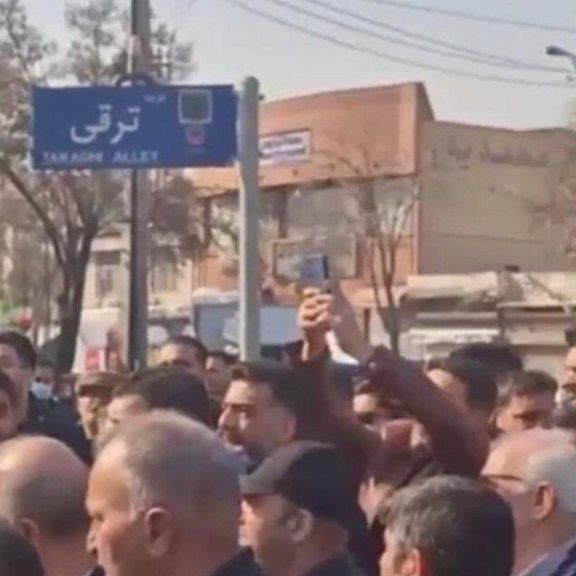
Shopkeepers in southern Tehran went on strike on Tuesday protesting runaway inflation and the rial’s steep devaluation, according to videos received by Iran International.
The shopkeepers protested around Molavi Street, Mohammadieh Square, and South Khayyam Street, an area known as a historic trading region of Iran's capital, holding up signs demanding economic stability and relief from soaring prices.
Similar protests were staged last year in late December when business owners and employees in Tehran’s historic bazaar staged a rare strike, spurring demonstrations in other commercial hubs in the capital.
On Tuesday, every US dollar was exchanged for 843,100 rials in the open market.
Iran’s currency has lost more than 30% of its value since early September last year, and inflation of consumer good has spiked to 50%, based on media reports from Tehran.
The Iranian rial’s sharp depreciation has had ripple effects across the economy. For merchants, it has created an untenable mix of higher costs and reduced consumer demand as at least one third of Iran is now living below the poverty line.
Since 2018, when the US re-imposed economic sanctions under the maximum pressure policy, Iranian currency has dropped nearly 20-fold. In the last five months alone, the rial has lost a further 30% of its value.
Over one third of Iranians are now living below the poverty line amid the worst economic crisis since the founding of the Islamic Republic.
Since the crisis kicked in back in 2022, it has led to many Iranians bartering for food items.
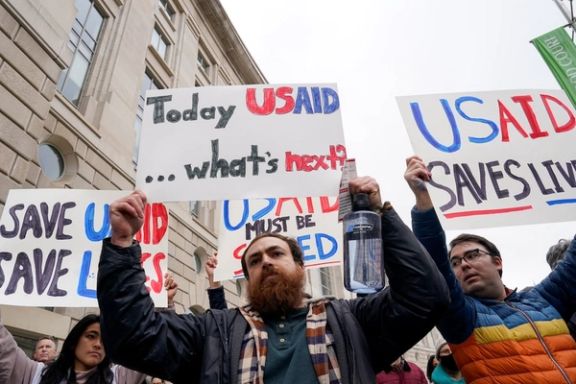
Senator Chris Van Hollen called new government efficiency czar Elon Musk's bid to shut down the US international development organization USAID a gift to adversaries including Iran.
"Make no mistake this effort by Elon Musk and so-called DOGE to shut down the Agency of international development is an absolute gift to our adversaries, to Russia to China, to Iran and others because AID is an essential instrument of US foreign policy and US national security policy," Van Hollen said.
DOGE is the Department of Government Efficiency formed and led by world's richest man Musk under President Donald Trump. Musk on Monday said Trump wants to shut USAID down, and its offices were closed and employees told to work from home.
"This has nothing to do with making the US government more efficient and everything to do with aiding and abetting our adversaries around the world," the Maryland junior senator told a cheering crowd outside USAID's Washington DC headquarters.
Human rights activists have expressed concern about the impact of Trump's earlier 90-day pause in foreign aid on Iran-related programs, with some saying the order could help Tehran further restrict its people’s access to information.
The United States has supported civil society and human rights in Iran on everything from documenting abuses by Tehran, Washington's Mideast arch enemy, to backing efforts to transcend official internet censorship.
Musk in a discussion broadcast on the social media platform he owns X said USAID was "beyond repair". Trump told reporters on Sunday that USAID had "been run by a bunch of radical lunatics ... We're getting them out, and then we'll make a decision."
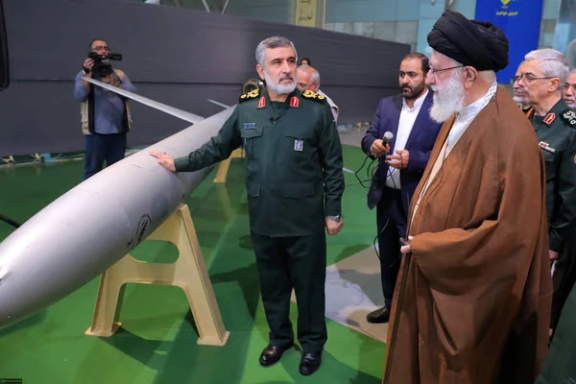
The United States is convinced that a secret team of scientists in Iran is exploring a faster way to develop a nuclear weapon - within months - should Tehran decide to build one, The New York Times reported on Monday.
Iranian engineers and scientists are seeking to be able to turn nuclear fuel into a weapon within months rather than a year or more, the report said citing intelligence collected in the last months of the Biden administration.
The report cited US officials as saying Washington still believes that Iran and its Supreme Leader Ali Khamenei had not made a decision to develop a weapon.
In December, White House National Security Adviser Jake Sullivan said the Biden administration was concerned that a weakened Iran could build a nuclear weapon and that he was briefing President-elect Donald Trump's team on the risk.
The Biden administration's intelligence assessment has been relayed to Trump’s national security team during the transition of power, the New York Times added.
The report was released as the relatively moderate president of Iran, Masoud Pezeshkian, has publicly expressed willingness to re-engage with the United States in talks over its nuclear program, which it says is for peaceful purposes.
Setbacks dealt to Iran and its regional allies in a 15-month conflict with Israel and the inability of Iranian missiles to pierce US and Israeli air defenses, the New York Times reported, galvanized Iran to to seek new ways to deter its adversaries.
On January 10, then-CIA Director William Burns suggested that Iran’s weakened strategic position marked by regional setbacks could open the door to renewed nuclear negotiations.
"That sense of weakness could also theoretically create a possibility for serious negotiations," Burns said in an interview with NPR, referencing his experience with secret talks involving Tehran more than a decade ago.
Last month, Trump, Biden and Israeli Prime Minister Benjamin Netanyahu all described Iran as weakened, citing Tehran's reduced influence following the fall of its ally Bashar al-Assad in Syria, Israeli attacks on its air defenses and the killing of leaders of its armed Palestinian and Lebanese allies.
However, Iran's Supreme Leader denied his country's power has been undermined. "That delusional fantasist claimed that Iran has been weakened. The future will reveal who has truly been weakened."
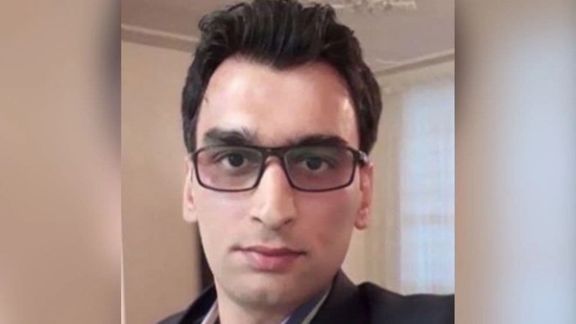
Iranian security forces are torturing a former political prisoner in a bid to extract a confession that he provided a gun used in the assassinations of two senior judges last month, a source familiar with the matter told Iran International.
Bijan Kazemi's home was raided by security agents in the western town of Kuhdasht in Lorestan province on Jan. 21, the source added, and all electronic devices belonging to him and his family were confiscated.
Kazemi was allowed to make a quick phone call to relatives.
“Kazemi was transferred from Kuhdasht to Ward 209 of Tehran's Evin Prison after his arrest. Intelligence Ministry agents beat him and are trying to extract a forced confession claiming that the shooter who killed Razini and Moghiseh obtained his weapon from him,” added the source, who requested anonymity for security reasons.
The two judges, Mohammad Moghiseh and Ali Razini were shot dead in Tehran on January 18 at the Supreme Court in central Tehran, in a rare attack on veteran top players in the theocracy. Supreme Leader Ali Khamenei led their funeral prayers.
According to Iranian media, the shooter, whose identity has not been revealed, took his own life as he was pursued by security forces.
Since the killings of Razini and Moghiseh, the Intelligence Ministry has arrested several former political prisoners allegedly in connection with the incident. No details have been released on those detainees.
Kazemi was previously imprisoned for two years after an arrest in 2020. He was allegedly affiliated with the formerly armed opposition group, Mojahedin-e Khalq, also known as MEK, according to the Iran Prison Atlas published by the California-based human rights organization United4Iran.
The two jurists, both clerics, had decades-long histories of handing down death sentences and lengthy prison terms to dissidents in numerous cases, and were nicknamed the “hanging judges” by critics.
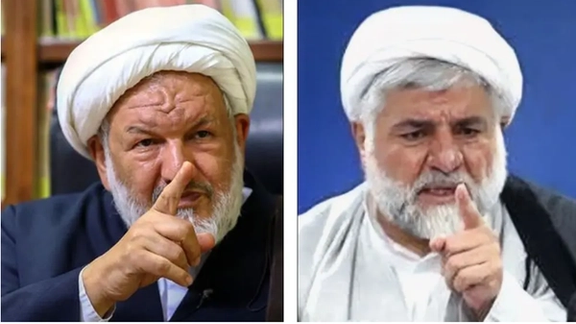
Moghiseh and Razini were known for their roles in the 1988 mass executions of political prisoners.
During the targeted attack, one of the guards of the Supreme Court’s 39th Branch was also injured, but his identity has yet to be disclosed.
Islamic Republic officials have given conflicting reports over how the killings took place.
“A note left by the attacker indicates that the People’s Mojahedin Organization of Iran (MEK) instructed him,” said Jafar Ghadiani, the Disciplinary Prosecutor for Judges in a statement on January 26.
A newspaper in Iran published a report on January 19 saying only 13 seconds passed from the moment the shooter entered the office to the time he left, during which he fired six rounds in rapid succession.
The deaths of Moghiseh and Razini struck a nerve in Iran particularly among former political prisoners, many of whom described harsh punishments they meted out.